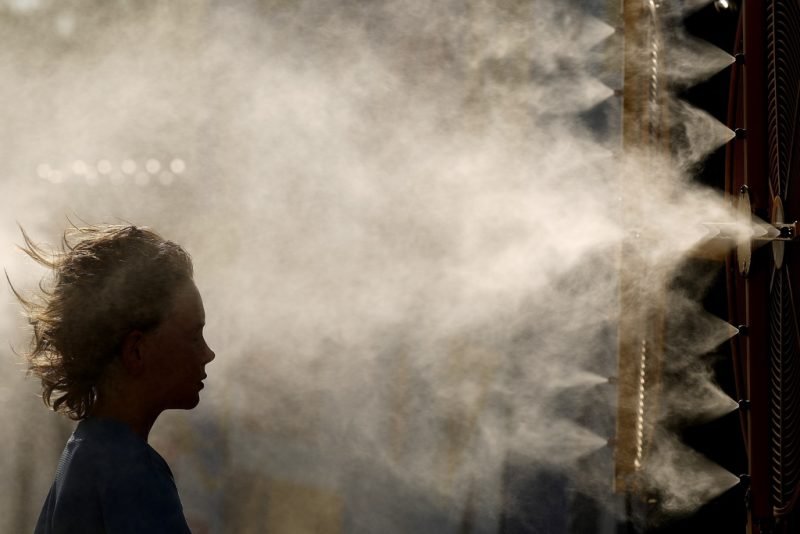
(NEXSTAR) – A “heat dome” is bringing scorching temperatures and oppressive humidity to the Central and Eastern portions of the country this weekend, just in time to mark the start of summer.
The National Weather Service says excessive heat is expected to hit the Plains region on Friday before spreading to the Midwest and Great Lakes. These conditions are expected to continue through next week, bringing excessive heat to the Ohio Valley and the East Coast.
“A lot of those folks have been saying, where’s summer? Well, buckle up, because it’s coming,” said Tom Kines, a meteorologist at the private weather company AccuWeather.
A heat dome, as explained by the National Oceanic and Atmospheric Administration, is a phenomenon created when high-pressure atmospheric conditions move slowly over a region, “capping” and allowing heat to build.
Domes, too, “can linger for days to weeks,” NOAA writes.
Daytime temperatures are expected to break 100 degrees F in the Plains beginning Friday, with surrounding areas to the east, west and south in the 90s, the National Weather Service forecasts. Dangerous temperatures continue throughout the region Saturday and Sunday, bringing 90-degree temperatures eastward to the Midwest, Ohio Valley and coastal regions. The heat continues to shift east on Monday and Tuesday, with temperatures nearing 100 degrees along the Mid-Atlantic and Northeast.
“While the hottest temperatures are likely this weekend into the first half of next week, a moderate risk (greater than 40% chance) of extreme heat continues into later next week across portions of the Ohio Valley as well as the Mid-Atlantic into the Carolinas,” the National Weather Service wrote in a recent alert.
Moisture blown northward from the Gulf of Mexico will bring humidity to the affected regions, too, according to Jacob Asherman, an NWS Weather Prediction Center meteorologist who spoke with the Associated Press.
While this type of humidity is typical this time of year, Kines, of AccuWeather, said moist air in the affected regions could make temperatures feel as much as 20 degrees hotter than what the forecast shows.
High temperatures can also pose health risks for vulnerable populations, including the young, the elderly and those working or living outdoors. NOAA officials urge those living in areas with the highest heat risks to learn to stay safe amid hot conditions and to recognize the signs of heat-related illnesses.
Minimizing direct sun exposure, wearing loose and light-colored clothing, staying hydrated and spending time in air-conditioned spaces, if possible, are also advised during extreme heat, NWS says.
The Associated Press contributed to this report.


